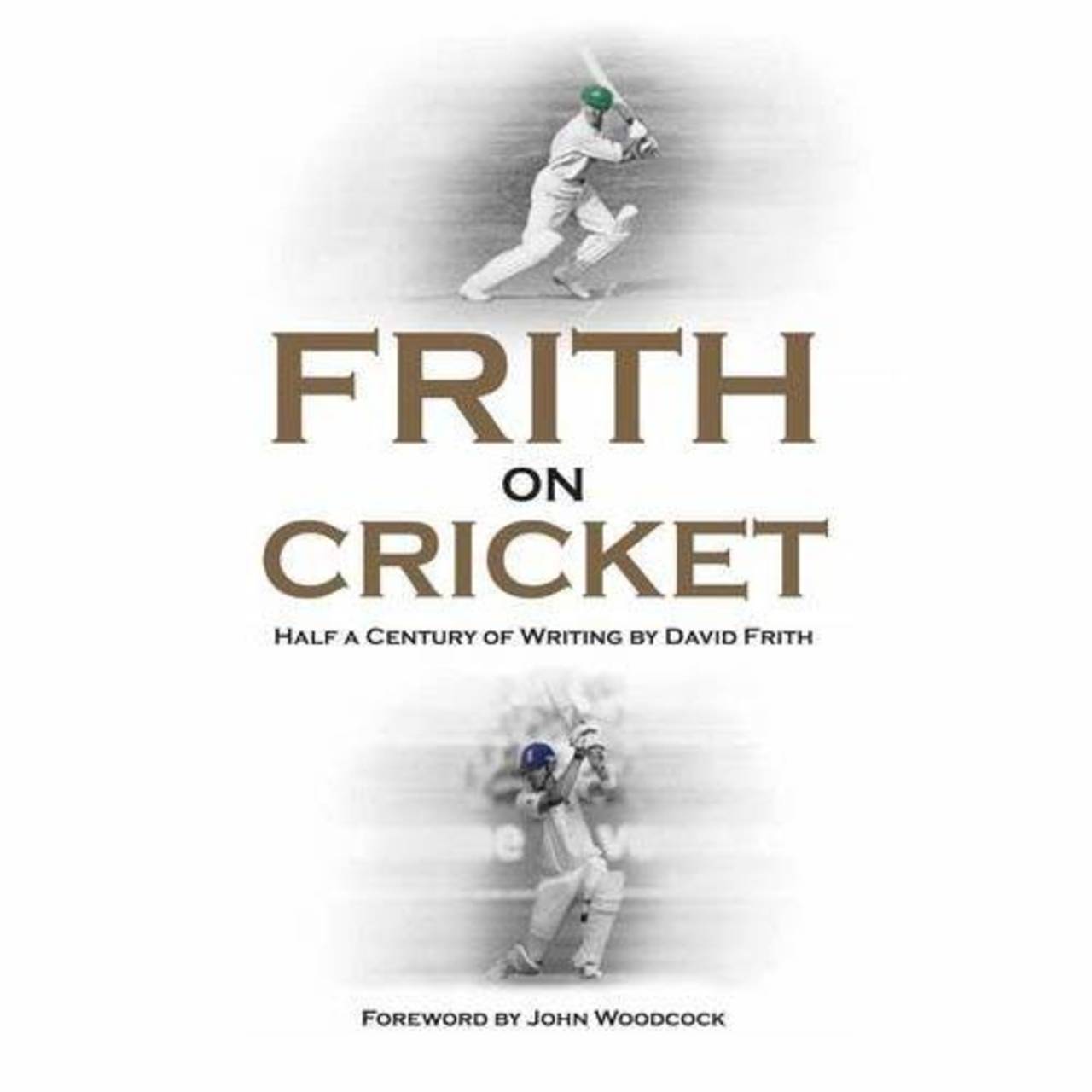A generous, sometimes sentimental, critic
An uncompromising historian's collected works bear witness to his affection for the game's virtues and his disgust for its vices
Stephen Fay
02-Oct-2010

Getty Images
David Frith is a phenomenon. A cricket slave, he has written 20 books, including prize-winning biographies of AE Stoddart and Ross Gregory, an autobiography and a catalogue of his own extensive collection of memorabilia; and he is curator of cricket's film archive. Along with Gideon Haigh he is the game's best historian. He has edited or co-authored 10 more books and edited the two monthly magazines. His 21st book is a collection of his writing, starting with a school essay in 1952. It is the record of a compulsive writer with tireless curiosity.
Frith has all the qualifications to become the Grand Old Man of cricket writing but there has always been a burr under the saddle that stops him sitting back and enjoying his unique status. John Woodcock, in a fond introduction, compares Frith to Addison's "touchy, testy, pleasant fellow" and notes that this has "tended to hamper relationships, particularly with magazine proprietors, as well as to command respect".
Linking passages in the collection become a litany of Frith's pet hates. He thought West Indies in their prime played in a way "founded on vengeance and violence, fringed with arrogance". He first proposed TV replays to scrutinise umpiring decisions in 1983 and is cross that they were introduced so gradually. Selling Test cricket to Sky was "a money-grubbing exercise", as is placing advertisements on the field of play. He deplores the Test captains who become TV and radio commentators, linking them to "the ghastly celebrity culture of today". He consistently opposed the boycott of South Africa, describing it as "cricket's Berlin Wall".
Uncompromising and controversial opinions undermined his editorship of the Cricketer, and of Wisden Cricket Monthly, which he founded to compete with the magazine that had rejected him. Each ended in unhappiness (though I do know that Sir Paul Getty, proprietor of WCM, was anxious to see Frith's name back in the magazine).
At heart he is a generous, sometimes sentimental, critic and an engaging, opinionated conversationalist; though woe betide any loose expression of liberal tendencies. The people he dislikes most are those who muddy the water of this "pure and enchanting game". The problem, he declares, "is often the kind of people
who seize the power to control [cricket's] immediate destiny". He might be referring to the Indian board, or even the ECB. His heroes have been great men,
on the field and off it, and the best of his deeply informed obituaries are of those who became his friends - John Arlott and Sir Donald Bradman, of whom he writes: "He loved debate and argument, on the economy, politics, cricket - with him preferably having the final word. Just like my own Dad. Just
like me."
He writes particularly well about Neville Cardus, EW Swanton and a fellow outsider, EM Wellings, the cricket correspondent of the London Evening News.
Frith named his son after Peter May, because, he says, he had promised that if he had a son he would name him after the world's leading batsman at the time.
Frith was born in London and grew up in Sydney and seems never to have been entirely certain where he belongs. In Ashes series he supports whichever side he
thinks is "more deserving or more in need". Consequently he must have been an England supporter for much of his adult life. He is the outsider that all institutions need - but do not always like - as a guard against complacency. Honour him.
Frith on Cricket: Half a Century of Writing
by David Frith
Great Northern
352pp, £18

by David Frith
Great Northern
352pp, £18
Stephen Fay is a former editor of Wisden Cricket Monthly. This review was first published in the September 2010 issue of the Wisden Cricketer. Subscribe here